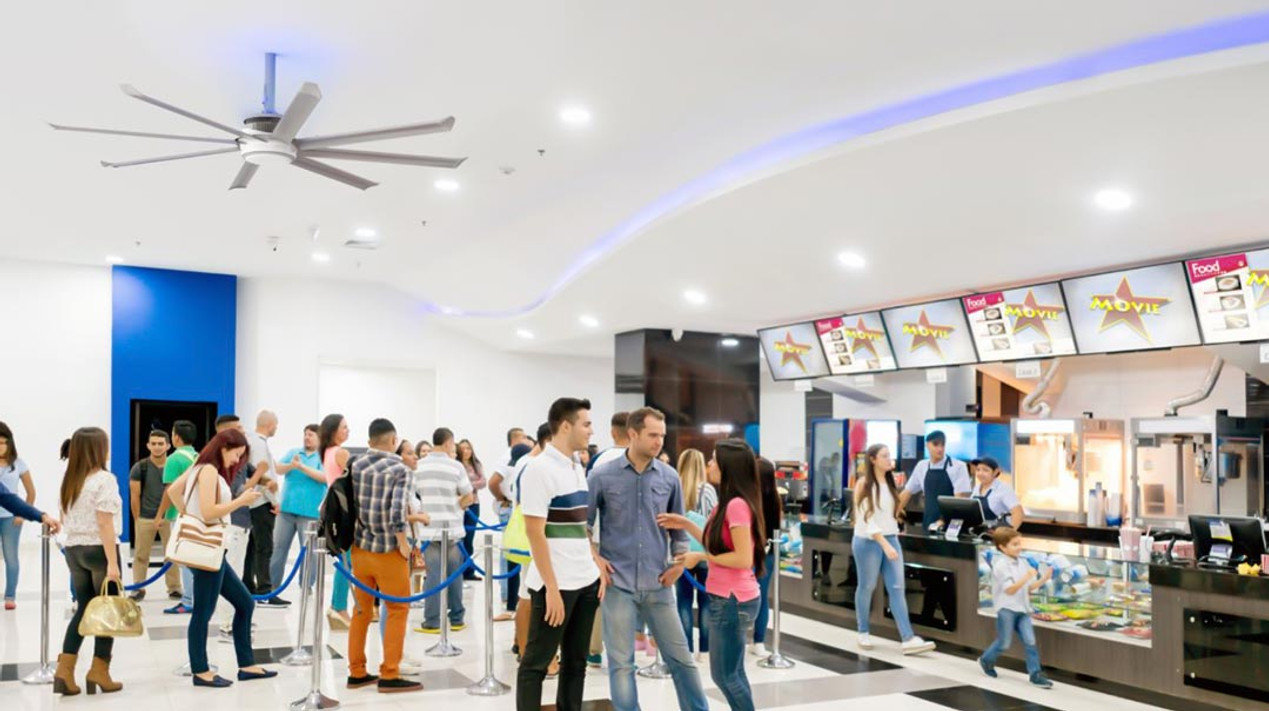Top 10 Air Disinfection Questions
Air disinfection and purification has moved to the forefront of public health and facility safety strategies, raising many important air disinfection questions for businesses and building managers. As part of a comprehensive infection prevention plan, air disinfection works alongside surface disinfecting, proper ventilation, social distancing, and masking to help reduce the spread of COVID-19 and other emerging airborne pathogens.
Understanding how air disinfection technologies work, where they are most effective, and how they complement existing hygiene practices is essential for creating safer indoor environments across commercial, healthcare, and high-traffic spaces.
Air disinfection and purification is rising to the forefront in the fight against Covid-19 and other emerging pathogens, as part of a comprehensive plan that includes surface disinfecting, social distancing, and masking.
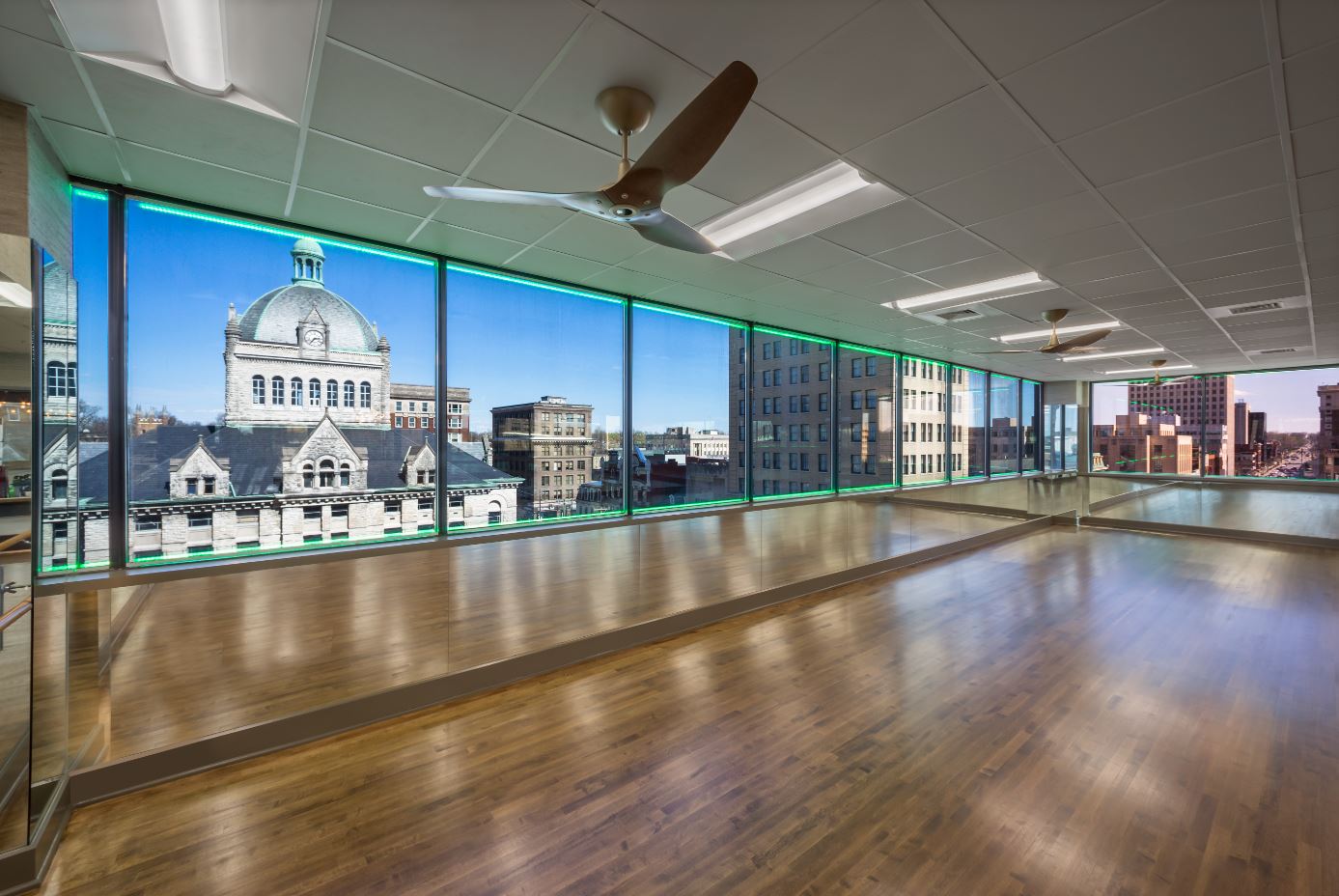 Big Ass Fans® Clean Air System – Haiku Fan in a fitness studio
Big Ass Fans® Clean Air System – Haiku Fan in a fitness studio
1. How Do You Kill Germs in the Air?
Before discussing effective ways to eliminate germs from the air, it’s important to understand what does not work. Spraying or using disinfectants in the air is ineffective. Disinfectants are designed for surfaces and quickly settle after spraying, making them unsuitable for air treatment. Inhaling disinfectants can also pose safety risks.
Effective tools for killing germs in the air include HVAC air purifiers, air filtration systems, and ceiling or stationary fans that use ion or UVGI (UV-C) technology. These solutions reduce airborne pathogens while also addressing allergens such as pollen and dander.
2. How Is Covid-19 Transmitted by Air?
According to the CDC, infections can spread through small droplets and particles that linger in the air for minutes or hours. These particles can infect people more than six feet away or after an infected person has left the space.
This airborne transmission is also how illnesses such as tuberculosis, measles, and chickenpox spread. Evidence shows that Covid-19 transmission has occurred in enclosed spaces with poor ventilation.
3. Does Electrostatic Disinfection Work on Air?
No, electrostatic disinfection does not work on air. While electrostatically charged disinfectants are effective on surfaces, they are not suitable for air treatment. UV light and ionic charging are the most common technologies used for air disinfection.
4. What Is UV Disinfection?
UV disinfection, often referred to as UV-C or UVGI (ultraviolet germicidal irradiation), uses light to damage the DNA or RNA of bacteria and viruses, preventing them from replicating and rendering them non-infectious.
To avoid harmful human exposure, UV-C technology is typically used in enclosed air filters or upward-facing fan systems.
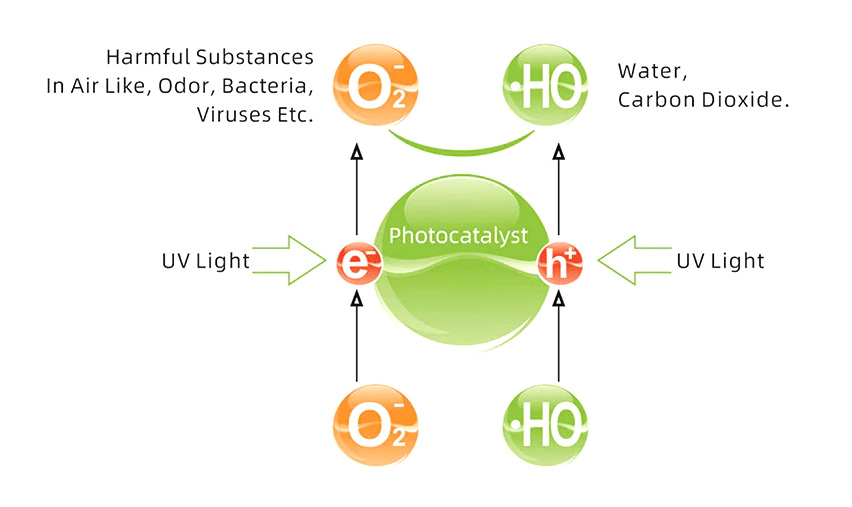
5. What Is Ion Disinfection?
Ion disinfection technology uses electrically charged particles to attack and neutralize pathogens. It is commonly found in fans and air filtration systems.
6. What’s a HEPA Filter?
HEPA (high-efficiency particulate air) filters are mechanical filters that trap particles such as pathogens, pollen, dust, and smoke by forcing air through a fine mesh. HEPA filters are commonly used in air purifiers.
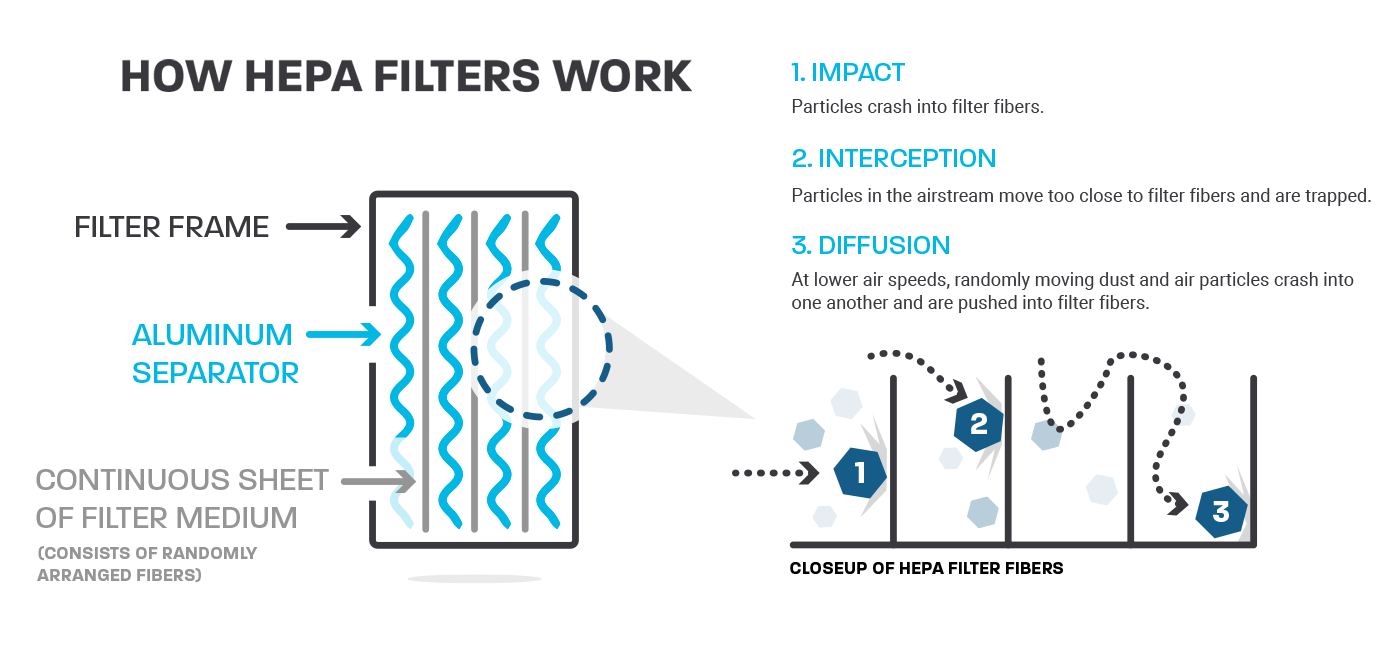
7. What Spaces Need Air Disinfection?
Most indoor spaces benefit from air disinfection, especially workplaces, public facilities, retail environments, entertainment venues, and fitness centers where people gather indoors.
8. Is Ventilation Important for Indoor Air Quality?
Yes. According to the EPA, ventilation helps remove or dilute indoor airborne pollutants, improving indoor air quality through natural airflow such as open windows and doors.
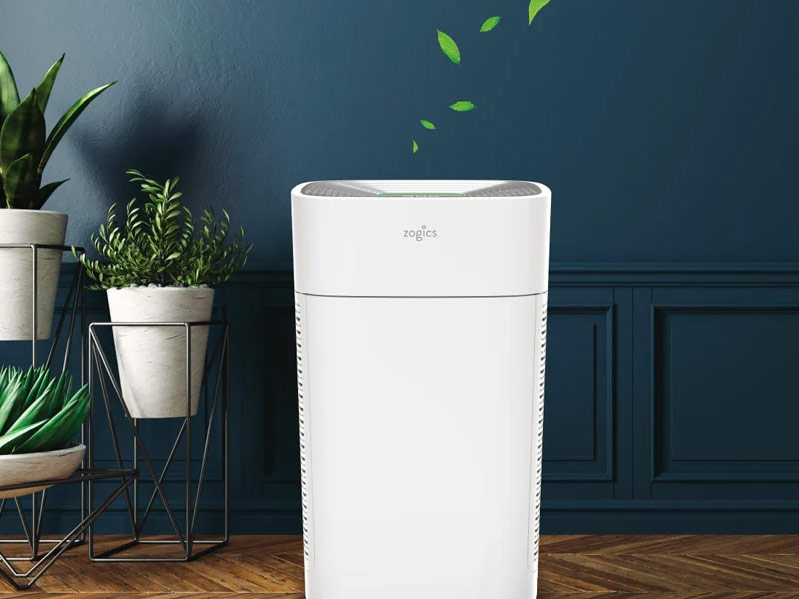 Zogics NSpire PRO Premium H13 HEPA Air Filtration System
Zogics NSpire PRO Premium H13 HEPA Air Filtration System
9. Will an Air Cleaner or Air Purifier Help Protect My Family at Home?
Air purification is one part of reducing infection risk. The EPA recommends using air cleaners alongside surface disinfecting, ventilation, social distancing, and masking.
10. Can Running an HVAC System Help Reduce Risk?
Yes. Keeping HVAC filters clean and properly maintained helps reduce airborne contaminants. Additional tools such as HVAC air purifiers can further reduce pathogens in indoor spaces.
Recent Posts
-
High-Touch Surface Cleaning Checklist & Guide for Facilities
Overview: What This Guide Covers This guide provides a complete, ready-to-use high-touch surface cle …Jan 16, 2026 -
Facility HVAC Cleaning Checklist: What to Clean, When, and Why
The Dust You Don't See In many facilities, floors get cleaned, windows shine, and restrooms are sani …Jan 09, 2026 -
Fragrance-Free vs Scented: Build an Allergy-Safe Cleaning Program that Still Works
When "Clean" Becomes a Complaint You know the scene: your custodial team disinfects the office overn …Dec 05, 2025

